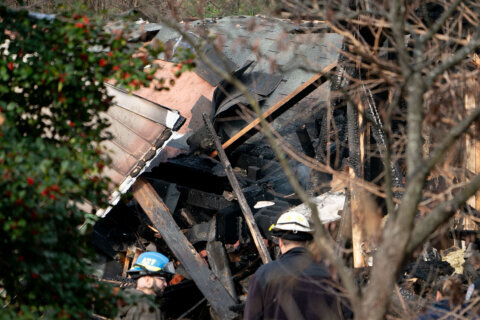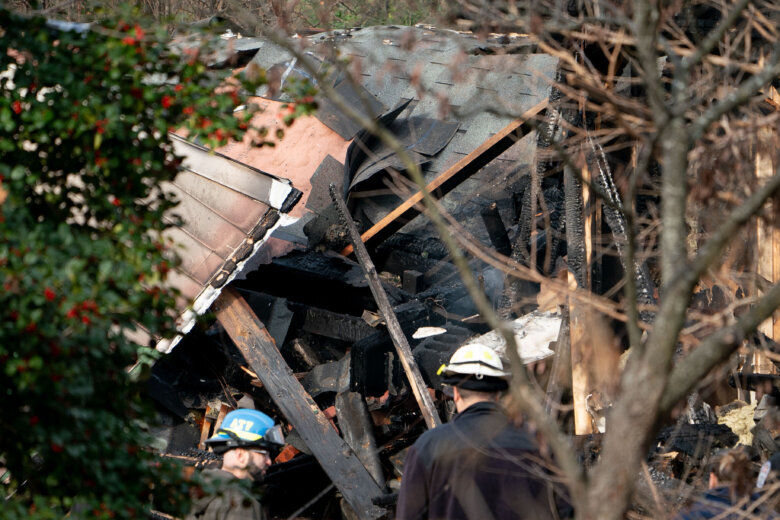
As investigators work to understand what led to Monday’s explosion of a house in Arlington, Virginia, court records are shedding some light on its owner James W. Yoo, who police believe died in the blast.
Yoo, 56, filed four federal lawsuits between 2018 and 2022 — each was dismissed, and some were described by judges as “convoluted” or “confused.”
In a 2018 suit in New York against his then-wife, younger sister and a hospital where he said he was committed against his will, the judge concluded the allegations were frivolous, and “the product of delusion or fantasy.”
During Tuesday’s news conference, Arlington County Police Chief Andy Penn said police were looking into Yoo’s online activity.
“We are aware of concerning social media posts allegedly made by the suspect and these will be reviewed as part of the ongoing criminal investigation,” Penn said.
On LinkedIn, Yoo recently posted paranoid rants about his neighbors and a former co-worker.
In Yoo’s 2018 suit against his family members and Rochester General Hospital, he alleged he was surveilled, harassed and subtly threatened, with the intention of inflicting emotional distress upon him.
The 163-page lawsuit, which Yoo wrote and filed pro se, included photos, receipts, medical records, and an email to his sister and wife that he described as his last will and testament.
The New York suit included dozens of seemingly unrelated allegations, that Yoo said added up to a conspiracy against his civil rights, false imprisonment, medical malpractice and defamation.
Yoo detailed alleged wrongs he had endured: In 2012, while interviewing real estate agents, one arrived wearing tight clothing and a short skirt. “In hindsight, the Plaintiff now believes that Plaintiff’s interaction with (the realtor) was some nefarious effort to entrap Plaintiff,” Yoo wrote.
Yoo’s filing included a misspelled, handwritten note and drawing from his five-year-old niece. In it, she wrote “I love you I holp you are felen good.”
According to Yoo, “Plaintiff interpreted ‘Felen’ as ‘Felon,” and wrote he believed his sister “used her child to create a message willfully intended to inflict emotional distress upon Plaintiff.”
Within weeks of Yoo filing the 2018 New York suit, Judge Charles Siragusa took it upon himself to dismiss the case.
“This action is so plainly frivolous, and its allegations are so clearly ‘the product of delusion or fantasy,’ that it cannot be permitted to proceed,” Siragusa wrote.
In the suit, Yoo denied having suicidal thoughts or previous depression, but communications with his family members described his being in therapy for mental health issues.
In his lawsuits, Yoo referenced many attempts to contact the FBI. He wrote that he believed that a New York Times reporter he saw on television was someone who had claimed to be an FBI agent and came to his house in 2017. He said the person warned him against further attempts to communicate with a U.S. attorney in western New York or he would face a harassment charge.
During Tuesday’s news conference, David Sundberg, assistant director of the FBI’s Washington Field Office, said Yoo had communicated with the FBI with phone calls, letters and online tips “over a number of years.”
“I would characterize these communications as primarily complaints about alleged frauds he believed were perpetrated against him,” Sundberg said. “The information contained therein and the nature of those communications did not lead to opening any FBI investigations.”
The Associated Press contributed to this report.









